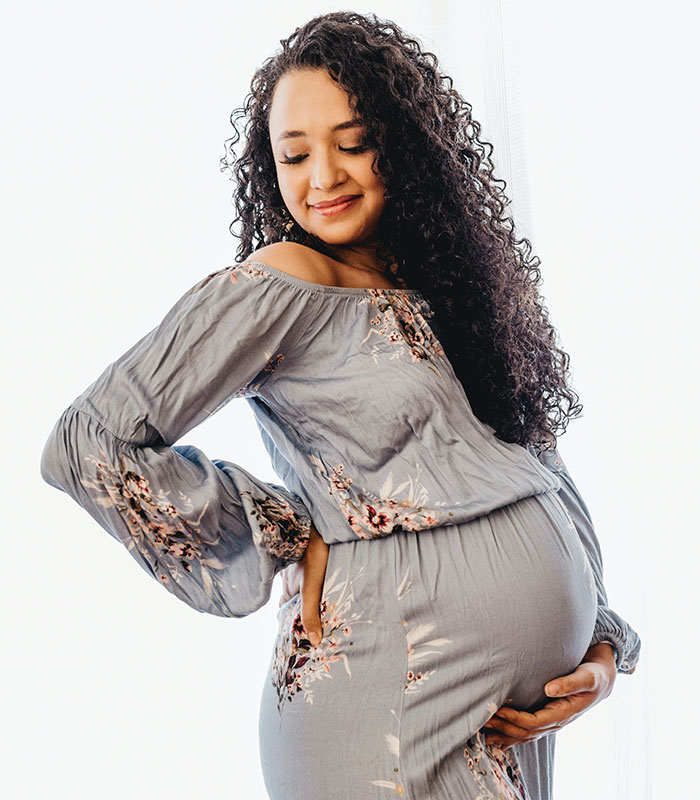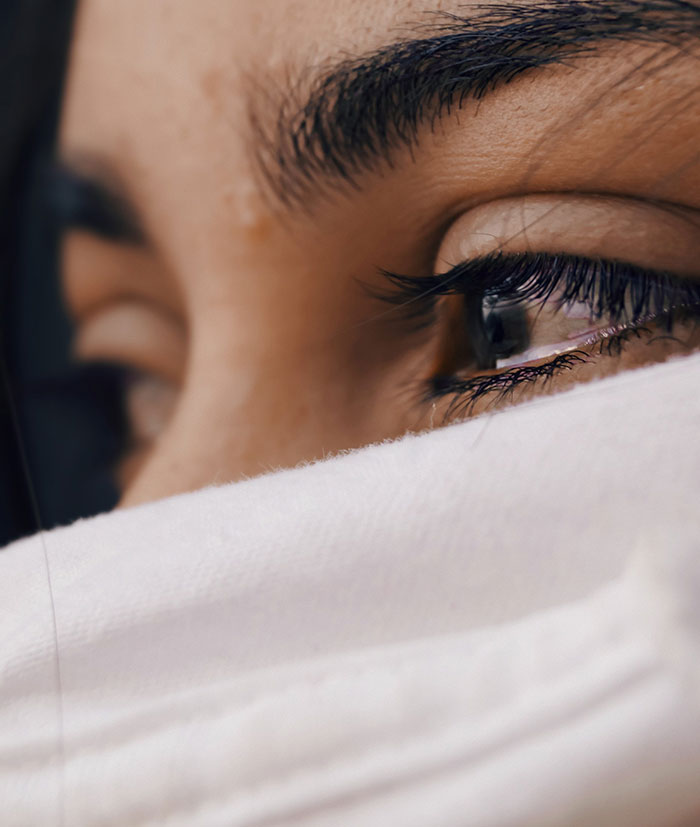
Hair loss due to stress is so common that almost everyone has experienced it or knows someone who has. This type of stress-induced hair loss can occur through an intense change in the body like pregnancy, postpartum, menopause, or obsessing over life.
These occurrences bring about high levels of change within your body, which can result in hair loss. While many of us have noticed these changes throughout the ebbs and flow of life, many still do not understand what is happening within.
Knowing what we know thus far, I think it is time to ask the really important questions like how do hormones affect us. Here is a closer look.
Hormones and Your Hair Growth Cycle
According to Sophia Emmanuel, Certified Trichologist from Crown Worthy Trichology Studio, “The endocrine system is made up of endocrine glands. The ovaries, thyroid, pancreas, and other glands all secrete hormones that circulate in the blood and regulate how we function. Hormone imbalance can affect body activity such as hair growth. Too much of a hormone or not enough can lead to diffuse hair loss, also known as telogen effluvium, defined as excessive hair loss from all over the scalp.”
Emmanuel emphasizes, “No one will go bald with diffuse hair loss because the hair is replaced, but the hair can look and feel thin because the rate of hair growth is slower than the hair loss. Normally our hair sheds during the telogen stage about 50 to 100 per day. Telogen hair appears on clothing, in the shower, and is what we see on a daily basis. The abnormal hair loss takes place when anagen hairs of the hair growth cycle prematurely shift to the telogen stage, which is the resting, and hair fall cycle. When there is an abnormal amount of hair follicles in the telogen stage diffuse hair loss occurs.”
You see, the endocrine system works to keep balance in the body. Unfortunately, when our body is off balance, a physical side effect is diffuse hair loss.

Photo Unsplash
How do pregnancy hormones affect hair growth?
When pregnant the body experiences an imbalance as changes arise. The pregnancy glow appears in the skin and suddenly hair growth is abundant! Unfortunately, it does not always last. The sudden growth occurs as certain hairs in the hair growth cycle become suspended on the anagen phase, therefore you see fuller, denser hair:
“During pregnancy, the high levels of estrogen increase hair growth. Approximately three months after pregnancy, estrogen along with other hormones return to normal levels” says Emmanuel. “Normal hair shedding that should have taken place during pregnancy begins at this point. This hair fall is temporary and no treatment is required. The hair loss will stop after three months and your hair should return to normal after six months.”
A common myth attributed to this hair loss is a deficiency diet. Although maximizing nutrient intake during that time is always welcomed for mother and baby, it may not eliminate the results of hormonal activity. It is recommended to welcome all change that occurs during this time to cause no added stress on your body. To expect change will help in coping and the emotional effects of hair loss could be helped through a trip to the hairdresser for a new haircut to support and conceal the hair loss. Deep condition your hair and treat the scalp with an essential oil massage. From here gently care for your strands to not induce excessive shedding. It is recommended to continue using prenatal vitamins for up to a year after delivery. The American Pregnancy Association recommends the following:
- Consulting with a healthcare provider.
- Avoiding tight ponytails, rollers, or braids.
- Eating a diet rich in fruit and vegetables to protect the hair follicles and encourage growth.
- Using wide tooth combs.
- Minimize heat styling.

Photo by Anthony Metcalfe on Unsplash
How does menopause affect hair growth?
The dreaded change for a woman can be devastating if not understood. While this change can bring about hot flashes and mood swings, it is a natural part of life for women and must be understood to bring about acceptance and not exacerbate its effects. During menopause, a woman’s estrogen lessens and stress typically increases. However, every woman has a different outcome.
Emmanuel says, “During menopause, androgenetic alopecia can occur in women genetically predisposed. During menopause ovaries stop producing estradiol but continue to produce androgens, male sex hormones, that may influence thinning of pubic and axillary hair (underarm hair) but increase facial hair. Treatments for genetic thinning caused by menopause include hormone therapy, which involves the taking of estrogens with cyproterone acetate, a progesterone that suppresses androgen activity in the body. Aldactone (spironolactone) is another drug prescribed by doctors. The topical treatment of Rogaine 2% or 5% for women can be used and can be purchased over the counter. Herbal remedies include taking saw palmetto. Research shows that saw palmetto may block 5-alpha reductase, the enzyme that converts DHT into testosterone. DHT is a sex steroid and androgen hormone responsible for hair loss.”
Women who are not genetically predisposed to androgenetic alopecia will want to visit their doctor or a certified trichologist to discuss hair loss. Typical recommendations include diet alterations, iron increase, and a weekly workout regimen to limit and relieve stress.

Image by Luis Galvez/Unsplash
How does stress affect hair growth?
No matter what age, sex, or stage of life you are in, stress can and will wreak havoc on your body during the stages of pregnancy, menopause, or any other hormonal transitions and stress. Stress is characterized by worry doubt, fear, and anxiety or brought on through disease or trauma to the body. Even lack of sleep or a nutrient deficient diet can bring about additional stressors, causing diffuse hair loss.
“Stress increases the production of five hormones. Growth hormone from the pituitary gland, thyroxin from the thyroid gland, adrenaline from the adrenal medulla, glucocorticoids from the adrenal cortex, and glucagon from the pancreas”says Emmanuel. “When these hormones increase, blood sugar levels increase taking the body to a diabetic state (hyperglycemia). When stress continues in the body for too long, all these hormones decrease. This takes the body to a hypoglycemic state, also known as low blood sugar. Both hypoglycemia and hyperglycemia cause diffuse hair loss. Correct diet and taking minerals such as chromium and zinc can help control blood sugar levels.“
The circle of life itself brings about many unavoidable changes. Thankfully we have the endocrine system to help us keep our balance. Knowing the intricate details of what is happening within can help you prepare when your time arises. Keeping a balanced, healthy life is key to making it beyond these transitions. A healthy diet rich in protein, fruits, vegetables, and high doses of water is necessary. Increasing your physical activity also strengthens the systems and helps to regulate your hormones.
Take care of your body to help your body take care of you.
Check out: How Four Women Dealt With Postpartum Hair Loss
This article has been updated with additional resources.
